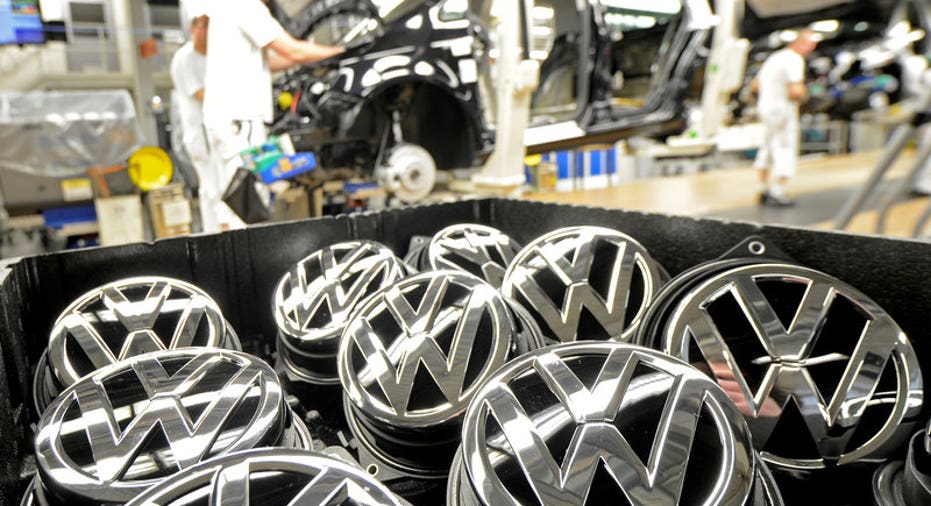Volkswagen Pleads Guilty to Criminal Charges in Emissions-Cheating Scandal

Volkswagen AG pleaded guilty to criminal charges for rigging diesel-powered vehicles to cheat on government emissions tests, capping the final significant U.S. legal settlement expected in a long-running deception that hammered the German auto company's reputation and finances.
In an unprecedented resolution for a criminal case involving an automotive company, Volkswagen pleaded guilty in a Detroit federal court Friday to conspiracy to defraud the U.S., commit wire fraud and violate the Clean Air Act; obstruction of justice; and import violations. The auto maker's plea agreement includes a $2.8 billion criminal fine and resolves a longstanding Justice Department probe.
Volkswagen has also agreed to an additional $1.5 billion civil penalty to settle the U.S. investigation. That is on top of previous civil settlements with consumers, regulators, dealers and state attorneys general in the U.S. that could cost Volkswagen more than $20 billion. Some current and former Volkswagen executives and employees were separately charged in the criminal probe, but weren't the subject of Friday's hearing.
Volkswagen General Counsel Manfred Döss entered Friday morning's guilty plea on the company's behalf before U.S. District Judge Sean F. Cox. The company was arraigned on the charges earlier before a magistrate judge in a separate hearing. Volkswagen signed a plea agreement with U.S. prosecutors in January, weeks before Friday's formal court hearings.
Judge Cox said he would forego sentencing until April 21. That final step would formalize Volkswagen criminal penalties that include the assignment of an independent monitor to audit its regulatory compliance practices for at least three years.
"Volkswagen's offenses are very, very, very serious," the judge said. "I just want more time to reflect and study."
The guilty plea codified Volkswagen's admission to conspiring for nearly a decade to deceive U.S. officials with illegal software known as defeat devices that allowed nearly 600,000 diesel-powered vehicles to pass emissions tests and then pollute beyond legal limits on the road.
The U.S. Environmental Protection Agency disclosed Volkswagen's deception in September 2015 and said the company's vehicles spewed toxic tailpipe emissions up to 40 times above allowable levels. Volkswagen admitted to installing the problematic software on some 11 million vehicles globally, sparking government hearings, litigation and investigations around the world targeting the company and many of its senior executives.
Volkswagen's emissions fraud was "a very well thought out, calculated, well-planned offense," said Assistant U.S. Attorney John Neal during Friday's court hearing, adding the conspiracy reached the "highest levels of the corporation."
Mr. Neal added that the government could have fined Volkswagen up to $34 billion, but assessed a lower figure given the auto maker's cooperation with the investigation, previous large civil settlements and efforts to compensate consumers affected by its deception.
Mr. Döss said during court proceedings that some Volkswagen supervisors and employees destroyed documents and files when learning of the emissions probe, and that the auto maker had deceived U.S. environmental regulators and customers.
A federal grand jury separately indicted seven Volkswagen executives and employees for their role in the emissions fraud. Many of them are believed to reside in Germany and it isn't clear whether they will travel to the U.S. to face charges.
U.S. authorities arrested one of them, Oliver Schmidt, the former head of Volkswagen's Environment and Engineering Office in Auburn Hills, Mich., in January at Miami International Airport as he prepared to travel home to Germany. After being transferred to Detroit, he pleaded not guilty to criminal charges and is being held at an area jail awaiting trial.
An engineer who pleaded guilty to criminal conduct for helping Volkswagen cheat on emissions tests, James Liang, is scheduled to be sentenced in May.
Former Volkswagen Chief Executive Martin Winterkorn resigned in the wake of the emissions crisis, and the company then suffered sales declines and financial losses, in part due to freezing affected vehicles on U.S. dealer lots. But the auto maker reported a profit for 2016 and passed Toyota Motor Corp. as global car-sales leader. Volkswagen recently curbed executive pay amid investor ire emanating from the emissions deception.
Still, the corporate criminal case against Volkswagen represented the harshest punishment yet stemming from an unprecedented government crackdown on automotive firms for safety and environmental lapses. Along with stiff financial penalties, prosecutors have been seeking charges against executives and employees implicated in auto-industry scandals.
Takata Corp. in January pleaded guilty to criminal wrongdoing and agreed to $1 billion in penalties to resolve an investigation of the Japanese supplier's handling of rupture-prone air bags linked to numerous death and injuries and historic recalls. Three executives were also charged.
Toyota and General Motors Co. in recent years settled criminal cases resulting from safety transgressions without pleading guilty to charges and suffering smaller financial penalties than that to which Volkswagen agreed.
In the waning days of the Obama administration, U.S. environmental regulators accused Fiat Chrysler Automobiles NV of using emissions software on diesel-powered Jeep Grand Cherokee sport-utility vehicles and Ram pickup trucks that allowed them to spew illegal levels of pollution. Officials stopped short of saying the software was designed to cheat emissions tests as Volkswagen's did. The Italian-U.S. auto maker has denied wrongdoing.
(By Mike Spector and Mike Colias; Christina Rogers contributed to this article)



















